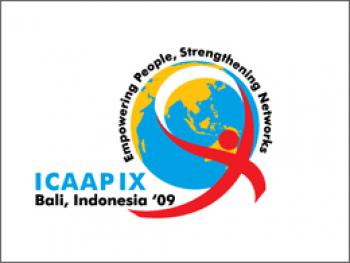Serendip is an independent site partnering with faculty at multiple colleges and universities around the world. Happy exploring!
ICAAP


When I first traveled to Indonesia, I was very excited to find out that a large UNAIDS conference would be overlapping with my trip, and that my professors had connections who could help sneak me in. The conference itself was wonderful, in the sense that I was able to speak to and meet many scholars who were doing work in the field I hope to eventually go into. It was thrilling to hear about the preeminent HIV research being done around the world at the same time I was taking my first stab at doing independent research. But the experience also disillusioned me, and made me rethink my admiration for big international organizations whose mission it is to fight health inequality. The conference was held at the Bali Convention Center, an upscale conference building adjacent to some of Bali’s must luxurious hotels, which was built after local residents were “bought” out of their homes. The beaches in front of the complex have become de facto “whites only,” as locals are strongly discouraged from spending time there. Moreover, the large amount of water used by the convention center and surrounding hotels (and their pools and fountains) where conference attendees stayed means that local populations are forced to ration water, and often only have running water for a few hours a day.
While I don’t necessarily buy into the many critics who describe the UN and similar organizations as being unilaterally bourgeois institutions who are puppets for capitalist interests, the conference did make me think about their role in promoting peace. My interest in public health goes well beyond my concern and passion about healthcare, although that is a big part of it – I also understand access to healthcare as being an integral part of peace. As the current Dalai Lama, Tenzin Gyatso, explains, peace is not just the absence of war, it is about a lack of threat and danger more broadly – in other words, structural violence is just as important to stop as physical violence is. So, it was very jarring to see an organization trusted with securing peace helping to perpetuate some of Bali’s most serious inequalities. It is also highlighted for me how important it is to not look at any issue – be it HIV or water access or nuclear disarmament – in a vacuum, separate from other global concerns. The pitfall of an organization like the UN, with so many specialized divisions, is how easy it is to forget that the world is a complicated web, and that problems can’t be decontextualized from one another. So, while I still think that UNAIDS funds incredibly important work, I also think it is important to problematize the ways it goes about doing that work.


Comments
Post new comment